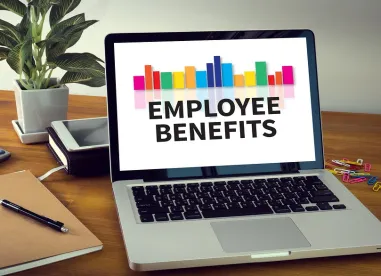Relief from the strict employee benefit cafeteria plan mid-year election changes rules has finally arrived. In Notice 2020-29, the Internal Revenue Service (IRS) issued guidance providing cafeteria plan participants with additional flexibility to make mid-year election changes as needed due to the COVID-19 pandemic. The new guidance also contains some non-COVID-19–related adjustments.
Flexibility for Mid-Year Election Changes
Typically, cafeteria plan elections can be changed mid-year only if an employee experiences one of the very specific election change events prescribed by IRS regulations. However, due to various personal and job-related changes arising from the COVID-19 pandemic, many employers and plan participants inquired about making mid-year election changes.
For example, some employees whose dependent care providers had closed, wished to discontinue their dependent care assistance program contributions. Other employees whose planned elective surgeries had been cancelled or postponed due to the pandemic wanted to reduce their flexible spending arrangement (FSA) elections. And some employees who had experienced COVID-19–related pay cuts wanted to reduce or revoke their elections. Under existing IRS rules, in many cases, such changes were not allowed.
The guidance in Notice 2020-29, however, temporarily relaxes the election change rules in a few specific circumstances during 2020 to allow an employee to:
-
make a new election for employer-sponsored health coverage if the employee initially declined”;
-
“revoke an existing election for employer-sponsored health coverage and make a new election to enroll in different health coverage sponsored by the same employer . . . (including changing enrollment from self-only coverage to family coverage)”;
-
“revoke an existing election for employer-sponsored health coverage,” if “the employee attests in writing that the employee is enrolled, or immediately will enroll, in other health coverage not sponsored by the employer” (for example, a spouse’s employer’s plan) and the employer does not have actual knowledge to the contrary;
-
revoke an election, make a new election, or change an existing election regarding a health FSA; and
-
revoke an election, make a new election, or change an existing election regarding a dependent care FSA.
These changes apply on a prospective basis only—in other words, going forward from the date the employee changes his or her election. They cannot be made retroactively to January 1, 2020.
IRS Notice 2020-29 also temporarily provides increased flexibility for health FSA and dependent care assistance programs (DCAP). If the health FSA or DCAP provided for a grace period for the 2019 plan year (i.e., the grace period expired in 2020), then the grace period can be extended until December 31, 2020. This gives employees a significantly longer time to use up their 2019 account funds.
All of the above provisions are optional, so employers can decide whether to implement all, some, or none of them. The provisions can be effective as early as January 1, 2020 (relief for any employers that may have allowed such election changes prior to the issuance of the guidance) or at a later date chosen by the employer. The IRS stated that an employer that adopts any of the changes must adopt a plan amendment to reflect those changes no later than December 31, 2021.
Pre-Deductible HDHP Coverage of Telehealth Effective January 1, 2020
IRS Notice 2020-29 also clarifies the timing of the Coronavirus Aid, Relief, and Economic Security (CARES) Act’s telehealth exemption for high-deductible health plans (HDHPs). The exemption allows HDHPs to provide low- or no-cost telehealth services before the deductible is met without jeopardizing participants’ eligibility to make health savings account contributions. Notice 2020-29 clarifies that the exemption applies retroactively to telehealth services provided on or after January 1, 2020.
Annual Increase to Health FSA Carryover
The IRS also issued Notice 2020-33, which is not specifically related to COVID-19, but provides employers additional flexibility with their cafeteria plans. Generally, cafeteria plans can provide for a carryover of up to $500 of unused health FSA funds at the end of a plan year, which can be used to reimburse participants for medical expenses incurred in the next plan year.
Notice 2020-33 increases the maximum permitted carryover amount. Now, instead of a flat $500 (or less) carryover, health FSAs can permit participants to carry over up to 20 percent of the maximum health FSA limit for the year. For 2020, the maximum health FSA limit is $2,750. This means that the maximum amount that can be carried over from 2020 to 2021 is $550 (20 percent of $2,750). As the maximum health FSA contribution amount, which is indexed for inflation, increases each year, the maximum permissible carryover amount will increase as well. The IRS stated that employers that would like to implement this increased carryover feature for 2021 must amend their plans by December 31, 2021.
Timing Adjustment for Individual Coverage HRAs
Notice 2020-33 also addresses a reimbursement timing issue with respect to individual coverage health reimbursement arrangements (ICHRAs). ICHRA rules permit expenses to be reimbursed on a tax-free basis only if they were incurred during a plan year. This caused a timing issue when a participant in a calendar-year ICHRA paid in December of one plan year for coverage that would be effective on January 1 of the following plan year. Previously, because the expense was technically not “incurred” until January 1, the individual could not be reimbursed for the payment until after January 1. Notice 2020-33 allows the plan to reimburse the premium when it is paid in December, rather than waiting until the coverage period begins in January.





 />i
/>i
